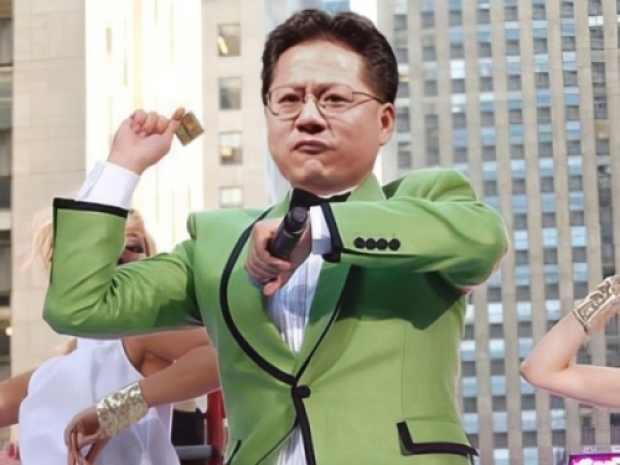At a White House meeting last week, Trump demanded Nvidia hand the federal government 20 per cent of its chip sales to China in return for export licences. “If I’m going to do that, I want you to pay us something,” Trump said at a press conference.
According to the Wall Street Journal, Huang countered with 15 per cent and whipped out a diagram to show Trump how tariffs would undercut his goal of boosting US chipmaking. Trump later said tech firms investing domestically would be spared from tariffs of around 100 per cent on semiconductor imports.
For Washington, letting China get its hands on the H20 marked a clear break from the hawkish anti-China mood of Trump’s first term and Biden’s years, when national security generally outweighed corporate interests. Many credit Huang’s relentless lobbying for the shift.
Huang, who once avoided Washington’s swamp in favour of mingling with gamers, only began serious politicking in 2023, joining troubled Chipzilla and Qualcomm chiefs to oppose Biden’s chip export limits. Trump’s second-term crew included China hardliners, but Huang pressed on, warning that Biden’s rules would gift opportunities to rivals like Huawei. Nvidia even roped in former Trump national security adviser Robert O’Brien to carry the urgency to the Oval Office.
Huang’s first real pitch to Trump came over a $1 million-a-head dinner at Mar-a-Lago in April, where he sold the $500 billion US investment plan. Elon Musk, angling to keep China’s advanced chips out of reach, later swayed Trump towards a ban, costing Nvidia $15 billion in potential sales.
By July, Huang was back in Trump’s ear, this time with White House allies including AI czar David Sacks and commerce secretary Howard Lutnick. They told Trump tight restrictions would only hand the AI crown to Huawei. Trump relented. Days later, while Huang was in Beijing, China secured its H20 shipments as part of a wider trade thaw.
Not everyone was impressed. Senate intelligence committee Democrats wrote to Lutnick voicing “grave concern” that Nvidia’s chips could speed up China’s military AI gains. Huang brushed it off, saying Beijing would not risk relying on something Washington could cut off at any time.
In China, Nvidia’s share of the market has halved from 95 per cent to 50 per cent in four years under US restrictions. Huang made at least three visits this year to reassure Chinese partners, earning the nickname “Magic Tailor” for cutting chip specs to skirt export rules. Beijing’s cyber watchdog recently grilled Nvidia over alleged H20 security risks, citing US lawmakers’ push for chip tracking laws. Nvidia denies the chip poses such dangers.
Despite the limits, the H20 has been key in fuelling AI demand for open-source models like DeepSeek and Alibaba’s Qwen. Huang is now preparing a next-generation Blackwell-based chip for China, officially another stripped-down version but still rooted in Nvidia’s most advanced architecture.
“Whatever we’re allowed to sell in China will continue to get better and better,” he told a Beijing audience.
Trump, meanwhile, says he is fine with H20 sales because the US has superior chips and hinted Huang might soon be back pitching to get his next product into China.
However, things are not over for Huang as there are questions about whether such a deal with Trump is legal.
Even if Trump framed it as a tax or “licence fee” going into government coffers, the lack of a formal policy process would be a problem. US law requires that tariffs, duties, or export fees be set through legislation or authorised regulatory procedures, not in an ad-hoc White House meeting over sausages on sticks.
On top of that, the Government Accountability Office and Office of Government Ethics would almost certainly want to know why a single company was being singled out for a special levy in exchange for market access.




